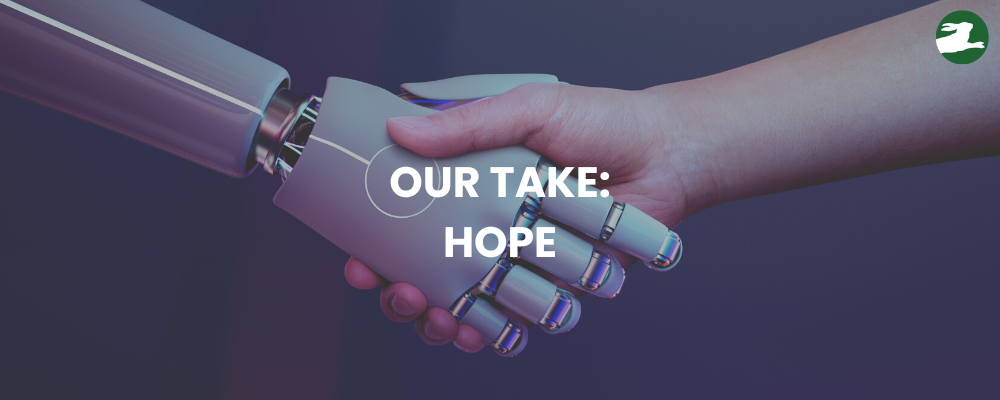Hope

Hope
It’s springtime in healthcare. I have seen the first signs of hope and renewal for our health system and I could not be more pleased to stop warning you about issues and challenges and instead turn to an optimistic outlook.
It was a long, cold winter. We all know the problems. If you are new to HCH, feel free to read any of my previous publications. Healthcare systems are full of wonderful caring people that have dedicated their lives to helping others, often at the most vulnerable and scariest time in their life. We must get them help, and I’m happy to report the long winter our health systems have been in since the darkest days of the pandemic are over. Spring is here.
Artificial Intelligence (AI) has been widely discussed in the news and tech community. If you have played with ChatGPT or other tools, you know they are incredibly powerful and effective. However, many people are concerned that the technology may be “too good” and could potentially replace jobs. This often triggers a natural human response, as described by Upton Sinclair over 100 years ago.
“It is difficult to get a man to understand something, when his salary depends on his not understanding it.” Upton Sinclair
We in healthcare should not have this problem. Healthcare faces a critical shortage of staff. This technology is not a threat to the work we aspire to do in healthcare but instead offers a path for positive change. We should not be afraid to learn about AI, as it can enhance our ability to provide human-centered care. This will be wonderful, and we are ready.
Our industry needs help, and AI offers the path. The only question is, what part of your work would you be happy to hand off and never touch again?
- Coding into the EMR
- Keeping up with new medical research and its impact on therapeutic options
- Billing insurance and claims disputes
- Scheduling to balance staff requests with required ratios and patient needs
- Discharge planning and finding available beds in a SNF
- Logistics and administration support for Home Healthcare workers
Right now – today, you can offload hours of drudgery using AI and related tools. Use this recaptured time in any way you like. Go home and see your family. Alternatively, help patients process their emotions. AI cannot understand the fear, sadness, and pain your patients are experiencing. Yet this is the superpower of empathic caregivers.
There are, of course, lots of details to figure out. We need to develop easy interfaces to hand this work to AI in a way that is compliant with existing regulations and fits into our system’s byzantine technology systems. In a subsequent article we will describe how HCH can help frame all the many “context details” necessary to allow valuable solutions to be quickly developed. Yet for now, it feels good to hope.
The snow is melting and the Dogwoods are in bloom.

